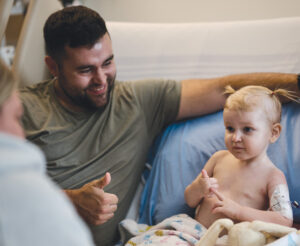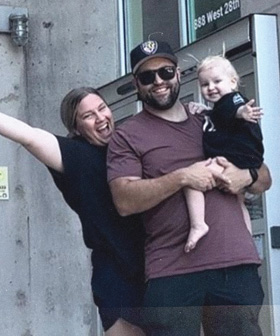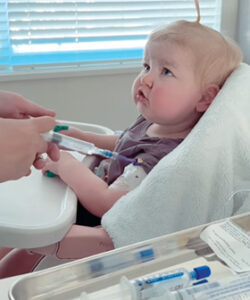Bringing life-saving care to the comfort of home

It was July 9, 2023. A medical team at BC Children’s Hospital was working around the clock to support Navy, a 2-year-old with an alarming infection in her liver. After a battery of tests, they discovered the cause: a rare genetic disorder called Chronic Granulomatous Disease (CGD). Her compromised immune system couldn’t fight the bacterial infection inside of her.
“It was terrifying to see Navy so sick,” said Navy’s mom, Charlene. “And then to find out the cause was a rare immune system disorder… it was so much to take in.”
“Rare” is not an exaggeration—Navy is the third British Columbian to be diagnosed with CGD in 20 years. Thankfully, BC Children’s is well-equipped to deal with rare diseases.
With a diagnosis in hand, Navy’s team tackled a complex series of health challenges. Not only did Navy have a serious infection, but the abscess on her liver had caused a coagulated blood clot that ran from her liver to her heart. An extensive recovery lay ahead. BC Children’s Hospital became Navy’s new home, and her family went through the exhausting but necessary process of shifting their life around her treatment and care. Days turned into weeks, weeks turned into a month. But gradually, Navy’s condition improved.
With Navy walking, smiling, and laughing like she used to, the family was eager to bring her back to their Langley home—with her care requirements in mind. But there was a catch: Navy still needed a long course of IV antibiotic treatment, which could keep her in the hospital for another three to four months.
That was when the family was introduced to Pediatric IV Outpatient Therapy (PIVOT). The program, which launched early this year, helps patients with serious infections get back to being kids. To do that, PIVOT educates, trains and supports family caregivers in administering IV antibiotics in the comfort of their own home. But it doesn’t just help kids. “PIVOT is a confidence builder for families. They’re able to take ownership of their child’s care and directly support them through illness,” said Dr. Tom McLaughlin, PIVOT’s Medical Director and lead pediatrician—who was given the chance to chase his boldest ideas through the Hudson Scholars Award Program in Pediatric Medicine.

The PIVOT team is comprised of Dr. McLaughlin and two nurse-clinicians, Rebecca Euverman and Amanda Doucette. They support patient families across BC and Yukon, both in-person and virtually by phone, email and Zoom. The team also supports local nurses and doctors who provide care to PIVOT patients living outside of the Lower Mainland.
Dr. McLaughlin is grateful to donors who helped power PIVOT. “The program wouldn’t be where it is today without the community’s support,” he explained. “Because of generous donations, illnesses like these don’t have to disrupt childhoods. While it may seem like a ‘small thing,’ it means everything for families to be able to return to life at home.”
PIVOT’s patient families would agree. Since the program’s launch in early 2023, PIVOT has helped patients collectively avoid over 755 hospital-bed days. And as Navy gears up for a bone marrow transplant in the new year, her parents are overjoyed that she’s able to be home for a few months. “It’s incredible, being able to tuck her in at night at home,” said Charlene. “I’m just so grateful.”

A day in the life of Navy at home
Navy has a unique schedule for a toddler. Here’s how her family manages her treatment plan.
7am
Navy takes four oral medications and an anti-coagulant injection administered by Mom or Dad.
3pm
Navy takes three more oral medications, followed by an IV antimicrobial run through her peripherally inserted central catheter (PICC). Her PICC allows the antibiotics to quickly reach her bloodstream.
6pm
Bath time. Navy’s parents work to “waterproof” her PICC.
7pm
Navy takes another three oral medications and a final injection for the day.
